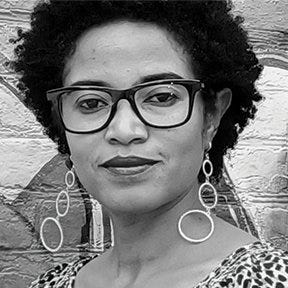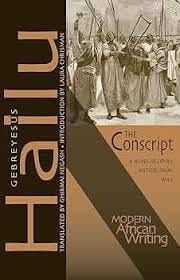Hey, Short Stuff!
a new short story class, a book contest, and the best Sudanese short story collection I've ever read!
I realize that if this arrived in your inbox and you are, personally, of small stature, you might have thought I was reaching out to comment on your height. I am not. I just have some fun things to say about short fiction.
Thing one:
The main roadblock delaying me in reading my way around the world is obligatory reading, particularly reading books to blurb. While I do love doing this, I’m giving it a hard stop in the new year—something I’ll write about soon.
Meanwhile, I finally finally finished the story collection Thirteen Months of Sunrise by the Sudanese author Raina Mamoun, translated from the Arabic by Elisabeth Jaquette and published in English by Comma Press.
This isn’t the first contemporary book I’ve read in this journey, but it’s the first by an author younger than me. (Only a year younger, but it’s odd that I think of myself as old and decrepit and then I see this writer’s birth year and go “Wow, and she has most of her career ahead of her!”) It’s also, apparently, the first Sudanese story collection by a single author that’s been translated into English. Comma Press previously put out The Book of Khartoum, a story anthology in which Mamoun has a piece.
This is a very slim volume, with short short stories, ones that are mostly in the vein of a snapshot rather than a narrative. In the title story, the narrator befriends an Ethiopian man and is enamored of the idea that the Ethiopian year is divided into thirteen months. In another, a woman endures a suffocating bus ride with a fly and a man with a strange accent. In another, a woman waits in line for possible charity relief for her son’s medical condition. None of these sounds dazzling as a plot, I know, because that’s not the point here.
Here are some of my favorite moments: A beggar woman who sleeps outside the mosque disappears when it’s raining, but “she always appeared shortly afterwards like a rainbow.” A woman’s teardrop falls and “the camera” that we’ve been witnessing her story through pans down and sees inside of it a memory of her son and husband. A woman attempts to walk every single street of the city in order to prove her love for it.
Mamoun is also the author of two novels and a 2023 collection of poetry. The collection’s publisher, Action Press, writes that “after years of writing and organizing against the regime of Omar al-Bashir, Sudanese writer, journalist, and activist Rania Mamoun was finally forced to leave her country with her young daughters, taking refuge in a US city in the early throes of a pandemic. Confined to her new home, Mamoun embarked on a daily practice of writing out of which emerged these poems of loss, despair, and hope.”
I don’t have any information beyond that on her safety, but you can support her by buying her work, which I now highly recommend.
What’s up next is another short one (a 64-page novella!) from Eritrea.
Gebreyesus Hailu wrote The Conscript in Tigrinya in 1927. Not published until 1950, it is, according to the publisher, “one of the earliest novels written in an African language.”
It’s about the experiences of Eritrean soldiers forced by Italy to fight against Libyan freedom fighters. This is not the first book in my adventure with a, um, not totally inspiring cover. (If any cover designer out there wants to do some pro bono work for the amazing tiny publishers and university presses putting out work in translation, there’s probably a special place for you in literary heaven.) But—as all our moms told us when we got back our 7th grade school photos—it’s what’s on the inside that counts! Also from the publisher: “The Conscript depicts, with irony and controlled anger, the staggering experiences of the Eritrean ascari… The novel’s remarkable descriptions of the battlefield awe the reader…” I’m not usually a battlefield girl, but I’m excited for this one.
Thing two:
I’m judging a book contest for Wildhouse Fiction, a new imprint from the independent Wildhouse Publishing. The winning book will be published by the press… The contest is open to both novels and story collections, but I especially wanted to urge people with story collections to submit; as you surely know, it’s much harder to find an agent and/or sign with a major press for a story collection, but small presses are great homes for these books.
The imprint editor, Rebecca Johns, says this is what she looks for in fiction (and what she’ll probably look for when she picks finalists for me): “Novels and stories are not simply a series of events, they are a series of emotions that enlarge and enliven our own experiences. To make a reader feel is the pinnacle of the storyteller’s art. Wildhouse Fiction seeks to publish books that go beyond plot into the secrets of the human heart. We look for a strong sense of voice and a playfulness with language, character, and ideas that makes the book a joy to read. We look for connection across time and space.”
You can find a little more info here.
Thing three:
I’m teaching an online short story class with unlimited enrollment!
Last fall, I taught a six-part novel class, and we had so much fun that I’m doing a 4-week one on stories.
Here’s part of the course description: “The pacing, arc, characterization, orientation and ending of a short story are often quite different from those of a novel, and we’ll explore the tactics unique to writing the short form. We’ll read and discuss four published short stories (one each week), discussing how they’re constructed and what makes them work. And we’ll talk about the writing process, from drafting to revision, as well as the short story marketplace: submitting and selling individual stories, and constructing a story collection. Optional weekly writing prompts will give you inspiration to start and complete one short story over the course of the class.”
Classes are live on Zoom, but also recorded so you can watch later or just watch again.
I hope you’ll join us! More details right here.
And, hey, a bonus!
Thing Negative One:
While we’re on the topic of short fiction… If you missed it, back last May I wrote this:
Why You Aren’t Reading Short Stories, and Why You Should
A couple of weeks ago, I posted on Twitter that I dared people to read one short story collection. Given that most of my followers are readers (or Zillow fanatics?) this shouldn’t be a big ask. But we know that it is. Industry wisdom is that for an author who puts out both novels and story collections, a collection will sell about a tenth as well as a n…












One of the most unforgettable novels - Sudanese or otherwise – was GHOST SEASON by Fatin Abbas https://wwnorton.com/books/9781324001744.
It’s slow to get started but once it sinks its hooks into you, it won’t let you go. Still thinking about the five POV protagonists, imagining different outcomes for their lives. Read it, if you can.
Thank you, Rebecca Makkai.